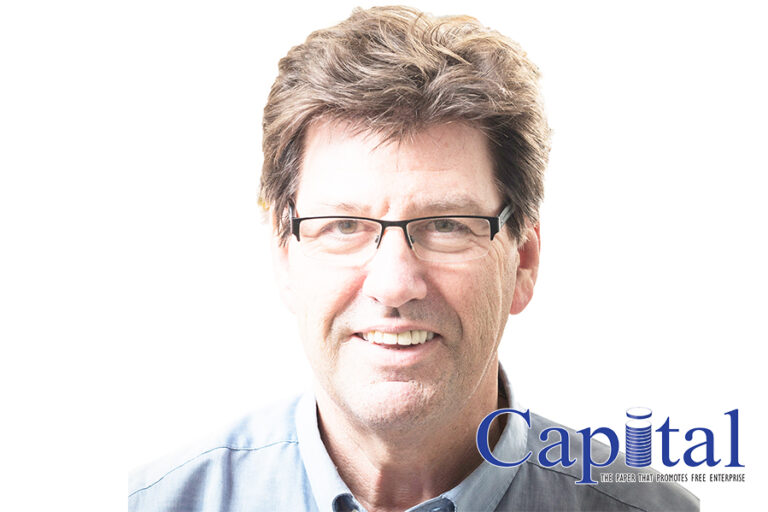Infrastructure development is the construction of basic foundational services to stimulate economic growth and quality of life improvement. Good infrastructure is vital for the functioning of an economy. Passable roads increase food producers’ access to local markets and allow for the import and export of goods and materials, and are essential for the distribution of fuel for example. Water supply and purification are important for access to safe drinking water for a fast urbanizing and the rural population, and also for the development of small and mediumsized businesses. Exports of local products and imports of raw materials also depend on accessible seaports and airports, while a constant, adequate energy supply is a prerequisite for the success of companies, large and small. However, demand for infrastructure far exceeds its actual development as we do not seem to have the institutional capacity and resources to create the infrastructure to effectively and efficiently provide for the fast growing needs.
We continue to see an enormous increase in putting up buildings, many of them multi-purpose buildings, apartment buildings, hotels, etc. But to arrive at a more conducive environment for sustainable outcomes for citizens and business, infrastructure is more than building assets, and should include long term effects, such as employment creation, social and environmental impacts, and alignment with longer term development strategies. The challenge for government is that this requires strong institutional capabilities, a stable, transparent, and effective regulatory framework, a great deal of technical and financial expertise, as well as the constant refinement of an enabling environment for investors.
So, where do we stand at this moment in time? Here follow just a few observations from the perspective of the small business owner.
In the neighbourhood where I reside, we used to get water from the mains supply system three times per week. This has recently been reduced to two times per week, without any formal communication, as far as I know. The supply of safe drinking water has never been adequate and seems to deteriorate, which is no wonder considering the fast expansion of the city. Any building or business will not get by without storing water in extra water tanks. For those who cannot invest in extra water storage for whatever reason, will have to have additional water delivered by water trucking services. How safe this water is, nobody knows. In any case, substantial costs and risks are added to running the business.
The same applies to the supply of electricity. A few power cuts per day are the norm. Without a back-up generator one cannot effectively sustain a business, while the power cuts cause interruption of production processes and may damage equipment. The running and maintenance of the generator again add up to the running costs of the business, while obtaining enough fuel for the generator presents its own challenges.
With the frequent power cuts comes the interruption of internet services, which business cannot do without anymore in our present days. This while more and more government processes and services like applications for permits and licenses are to be done online. While doing so, chances are high that the online process does not work fully. In case of running into problems one is advised to call a service number, which is normally not answered. Explaining the situation in person to the office is then met with the reply that they are not responsible for the online services, and one is advised to try again. Not every small business owner is ITC literate though and will continue to run into problems. By the way, I don’t know about you, but I often fail to check in online with Ethiopian Airlines, a service one would expect to function effectively, considering the size and kind of the business.
Any business owner is expected to submit the financial returns of the year to establish to amount of taxes due. To complete this process, one goes to an Inland Revenue Office and will present the required documents the one of the auditors who will assess the contents and calculate the taxes due. The way the services are organized is mind boggling to say the least. There are several steps and checks to pass before joining a line of other business owners all waiting to be served by the assigned Inland Revenue Auditor. People wait round his or her desk and all can overhear anybody’s case. Nobody will complete the process in one go and all are sent back and forth a few times to bring missing information. This just shows how difficult it is for the business owner to know exactly what is required to complete the process. Much time, energy and money are wasted in the process.
I can continue but I will not as the reader will recognize some of the challenges, we all face. As mentioned above, an effective infrastructure requires strong institutional capabilities, a stable, transparent, and effective regulatory framework, a great deal of technical and financial expertise, as well as the constant refinement of an enabling environment for investors. I think it is fair to say that there are shortcomings in all of these preconditions, and it requires a lot of work and effort to make the necessary improvements. To see a difference though and to make anything work more effectively and efficiently, we need to see the combination of three basic factors: knowledge, skills, and motivation. Or in other words: I know, I can, and I want.
We can design any project to enhance institutional capacity, to design a regulatory framework, and to develop expertise. To create a truly conducive environment to do business, we may need to work more though on our motivation to provide effective, efficient, and supportive services. And that challenge is ours and ours alone, no matter what role we play in society.
Ton Haverkort
ton.haverkort@gmail.com






